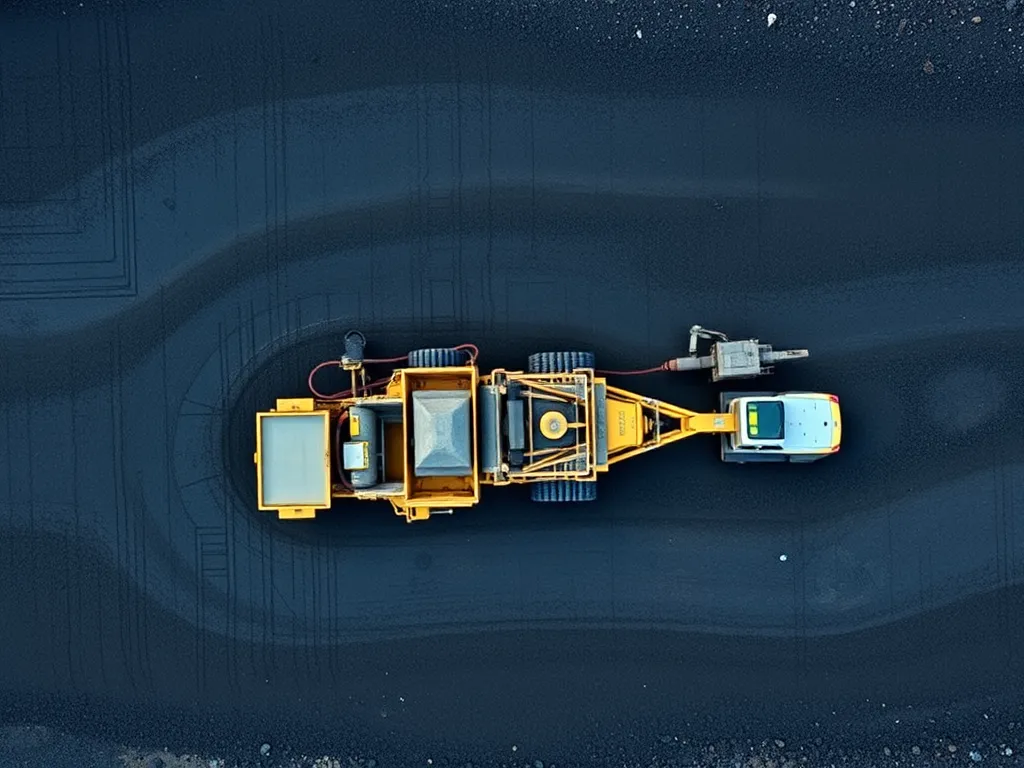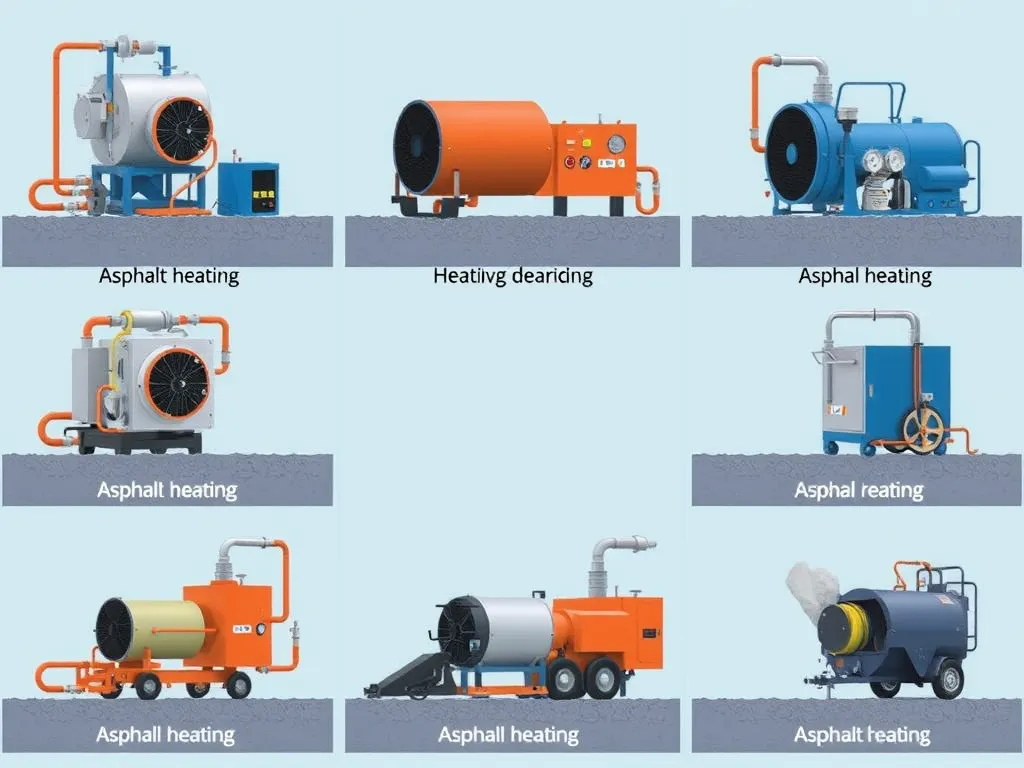Is Asphalt Sealcoating Worth the Cost? Here’s the Real Deal
Published on: November 6, 2025 | Last Updated: April 14, 2025
Written By: George Voss
Asphalt sealcoating is a cost-effective maintenance method that protects pavement by applying a protective layer of coal tar or asphalt emulsion. At $0.10-$0.25 per square foot, it costs 90% less than full asphalt replacement ($3-$7 per square foot). Properly applied every 2-3 years, sealcoating extends asphalt life by 5-7 years by blocking UV rays, water penetration, and chemical spills. It prevents cracks and potholes that lead to expensive repairs, with studies showing regular sealing reduces long-term maintenance costs by 40-60%.
This guide examines sealcoating’s financial impact versus alternatives like asphalt overlays or concrete. We’ll break down material versus labor expenses, compare DIY costs to professional services ($250-$600 average for 1,000 sq ft), and analyze regional price differences. You’ll learn how to calculate coverage rates, identify when sealing becomes cost-prohibitive, and explore how climate impacts application frequency. Later sections cover eco-friendly options and strategies to maximize your investment through timed applications and combined repairs.
Contents
- Sealcoating Basics for Asphalt Surfaces
- Cost Analysis Of Sealcoating Asphalt
- Pros and Cons Of Sealcoating Asphalt
- Sealcoating Application Methods
- Factors Influencing Sealcoating Costs
- Maximizing Sealcoating Value
- Environmental Considerations
- FAQs: Asphalt Sealcoating Costs and Effectiveness
- Pros and Cons Of Sealcoating Asphalt
- Sealcoating Application Methods
- Factors Influencing Sealcoating Costs
- Maximizing Sealcoating Value
- Environmental Considerations
- FAQs: Asphalt Sealcoating Costs and Effectiveness
- Closing Thoughts
- Additional Resources for You:
Sealcoating Basics for Asphalt Surfaces
Protecting asphalt requires knowing both the materials and timing. Let’s break down the fundamentals.
What is Asphalt Sealcoating?
Asphalt sealcoating applies a protective layer using coal tar, asphalt emulsions, or polymer-modified liquids. This mix blocks UV rays, water penetration, and chemical spills. Modern formulas like Calcetto Veranda Plus include additives for faster curing and enhanced flexibility. A single application adds 3-5 years to pavement life by slowing oxidation and aggregate erosion.
When to Apply Sealcoating on Asphalt Driveways
Time applications strategically to maximize cost effectiveness. New driveways need 12 months to cure before first sealing. Reapply every 24-36 months in mild climates. Areas with heavy snowfall or intense sun require 18-24 month cycles. Watch for fading (grayish tones) or hairline cracks – these signal oxidation has started. Delaying past this point raises repair costs by 40-60% compared to preventive sealing.
Proper timing reduces long-term expenses. Let’s examine how these basics translate into actual costs.
Cost Analysis Of Sealcoating Asphalt
Sealcoating costs hinge on three key factors: surface size, labor rates, and material quality. Let’s break down the numbers.
Average Cost to Sealcoat Driveways
Most homes spend $100-$450 per job. Small driveways (300 sq ft) start near $90. Large lots (1,000+ sq ft) reach $700+.
Material Costs vs. Labor Expenses
Materials run $0.10-$0.30 per sq ft. Labor adds $0.15-$0.50 per sq ft. Pro crews often bundle these costs.
DIY vs. Professional Sealcoating Pricing
DIY kits cost $30-$60 for 300 sq ft but need tools. Rent spray gear for $75/day. Pro work averages $0.25-$0.80 per sq ft with warranties.
Cost Per Square Foot for Asphalt Sealing
Expect $0.15-$0.35 per sq ft for basic coal-tar sealers. Premium asphalt-based mixes hit $0.40-$0.70.
How to Calculate Driveway Square Footage
Measure length x width. A 20ft x 40ft drive = 800 sq ft. Add 10% extra for waste on uneven surfaces.
Long-term Savings Vs. Asphalt Replacement Costs
Seal every 2-3 years at $300-$600 total. Replace asphalt every 15-20 years at $3,000-$7,000. Fixing cracks costs 3x more than sealing.
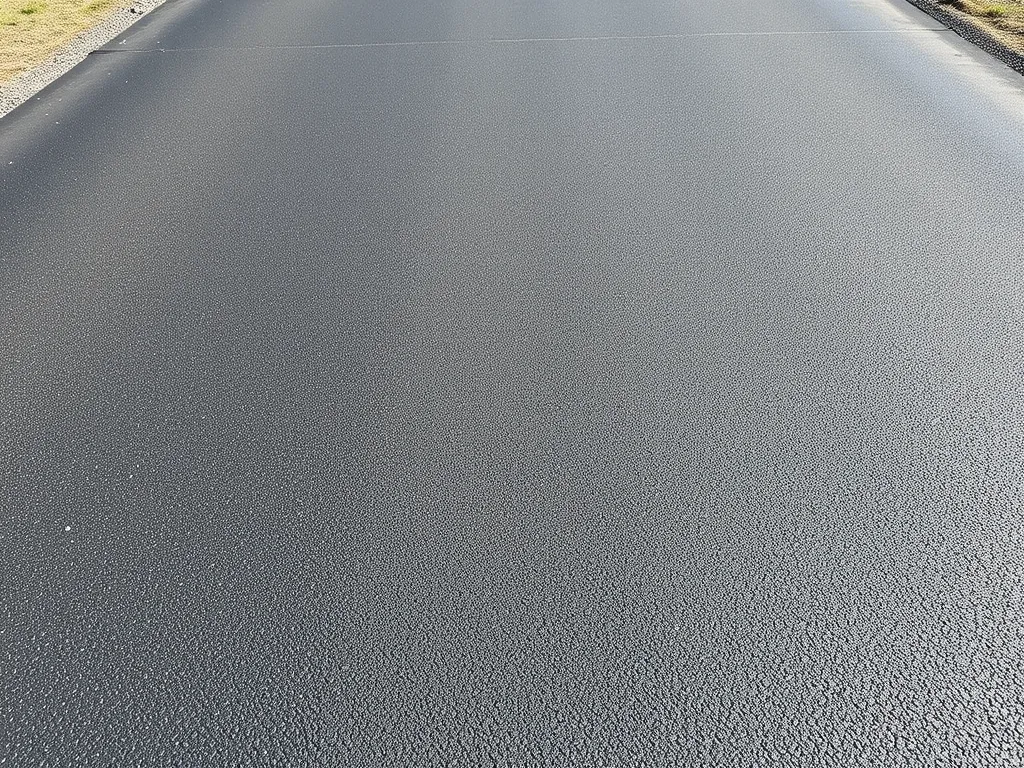
Pros and Cons Of Sealcoating Asphalt
Sealcoating shields asphalt but has limits. Weigh these points before buying.
Benefits Of Sealcoating Driveways
Fresh seals block water, UV rays, and oil spills. Proper care doubles asphalt life from 10 to 20+ years.
Extended Asphalt Lifespan
Unsealed drives crack in 3-5 years. Sealed ones last 8-12 years before major fixes.
Prevention of Costly Repairs
Sealcoating stops 80% of cracks. Fixing one 10ft crack costs $100-$250 – equal to sealing 400 sq ft.
Limitations Of Sealcoating
Sealants work best on sound asphalt. They can’t fix deep issues or skip upkeep.
Temporary Solution for Severe Damage
Seals hide potholes for 6-12 months. Full-depth repairs cost $8-$12 per sq ft but last decades.
Weather Dependency
Rain within 24hrs ruins fresh seals. Heat above 90°F causes fast drying and streaks.
Also See: Asphalt in Municipal Infrastructure: Building Smarter Cities
Sealcoating Application Methods
Two paths exist: hire pros or DIY. Each has trade-offs in cost and results.
Professional Driveway Sealcoating Process
Teams clean, fill cracks, then spray or squeegee sealant. Drying takes 4-8 hours. Cure time: 24-48hrs.
DIY Asphalt Sealing Considerations
Home kits suit small, flat drives. Steep slopes or large areas risk uneven coats.
Equipment and Material Requirements
Buy: sealer ($20-$50 pail), brush, squeegee. Rent: pressure washer ($40/day), spray system ($75/day).
Common DIY Mistakes to Avoid
Over-diluting sealant. Skipping crack prep. Applying in direct sun. Using old product (check expiry dates).
Factors Influencing Sealcoating Costs
Five elements change sealcoating prices: surface state, weather, seal type, labor, and add-ons.
Driveway Condition and Preparation Needs
Cleaning moss adds $0.05/sq ft. Filling 10+ cracks tacks on $50-$150. Oil spot removal: $20-$40 per stain.
Climate Impact on Application Frequency
Hot states (TX, AZ) need sealing every 2 years. Cool zones (MN, ME) stretch to 4-5 years between coats.
Type Of Sealant Material Used
Coal-tar: $0.15-$0.25/sq ft. Asphalt-based: $0.20-$0.35. Polymer-modified: $0.30-$0.50. Fast-dry: +15% cost.
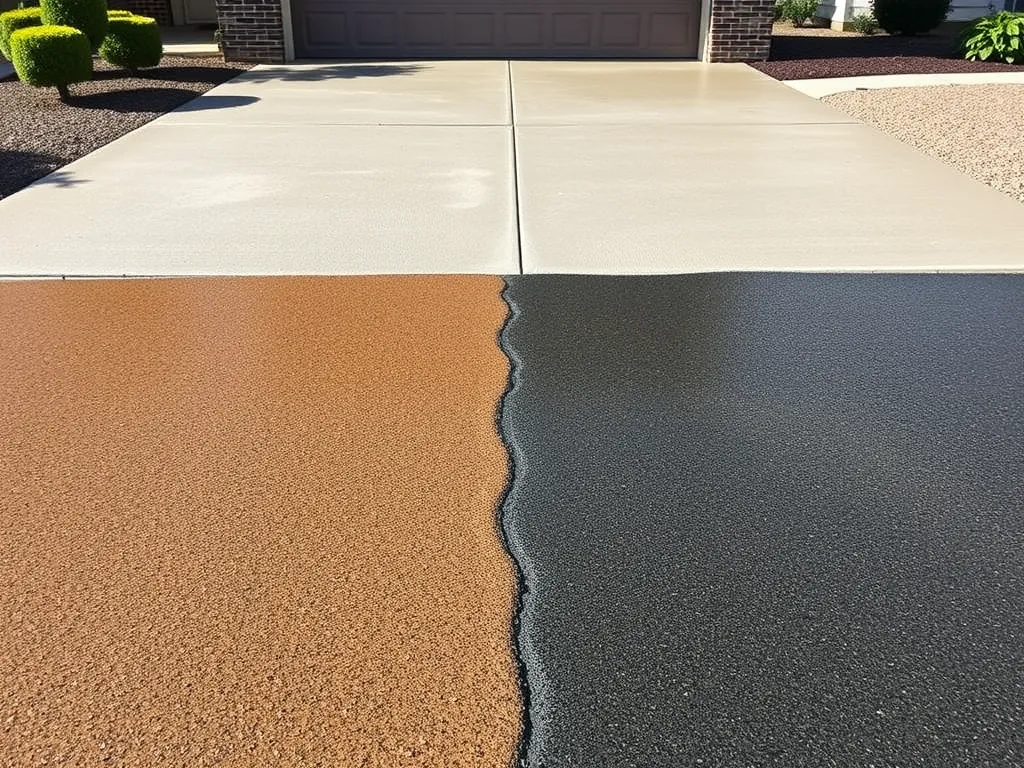
Maximizing Sealcoating Value
Boost results by timing jobs right and pairing with upkeep tasks.
Optimal Application Timing
Seal in 70°F-85°F weather. Spring/fall slots prevent summer heat cracks and winter freeze-thaw damage.
Combining With Crack Filling/patching
Fill cracks 2 weeks before sealing. Patch holes with cold-pour asphalt ($5-$8 per 50lb bag).
Maintenance After Sealcoating
Wait 72hrs before driving. Sweep monthly. Reapply sealant when water stops beading on the surface.
Environmental Considerations
New rules push greener sealants. Plan for safe use and disposal.
Eco-friendly Sealcoating Options
Bio-based sealers (soy, pine) cost 20% more but cut VOC emissions by 90%. Some states ban coal-tar products.
Proper Disposal Of Materials
Leftover sealant? Dry it with cat litter. Toss hardened chunks in trash. Never pour liquid into drains.
FAQs: Asphalt Sealcoating Costs and Effectiveness
Quick answers to common budget questions.
Is Sealcoating Worth the Money for Asphalt Driveways?
Yes. Every $1 spent on sealing saves $4 in repairs over 10 years.
What Are the Main Disadvantages Of Sealcoating?
Can’t fix deep cracks. Needs redoing every few years. Messy during application.
How Does Coverage Rate Affect Total Costs?
Low-coverage sealants (50 sq ft/gal) cost 2x more than high-yield brands (100 sq ft/gal).
Can DIY Sealcoating Provide Adequate Protection?
If done right. Pros apply 2x thicker coats. DIY jobs often use half the needed material.
How Often Should Asphalt Be Resealed?
Every 2-3 years for heavy use. 3-5 years for low-traffic drives. Test with water spray – if absorbed, reseal.
Now that we’ve mapped the costs and trade-offs, let’s explore how climate shapes sealcoating schedules and material choices.
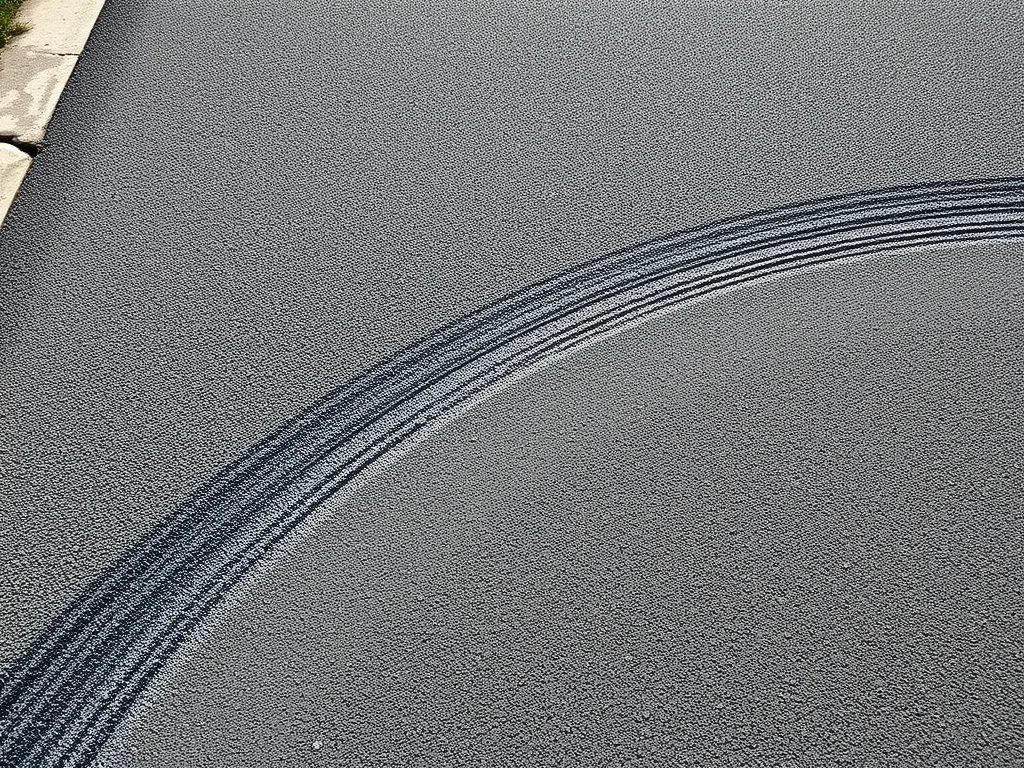
Pros and Cons Of Sealcoating Asphalt
Weighing the value of sealcoating requires examining its protective capabilities against its limitations. Let’s break down how this process impacts your wallet and pavement longevity.
Benefits Of Sealcoating Driveways
Properly applied sealcoating acts as both armor and insurance for asphalt surfaces. Two key advantages directly affect cost-effectiveness:
Extended Asphalt Lifespan
Unsealed asphalt typically lasts 10-15 years before needing replacement. Regular sealcoating every 2-3 years stretches this to 15-30 years by blocking UV rays and oxidation. At $0.14-$0.25 per sq.ft. for materials, this adds 8-12 years of service for under $500 on average-sized driveways.
Prevention of Costly Repairs
Sealcoating fills surface cracks <3mm wide, stopping water infiltration that causes base failures. This prevents repairs costing $8-$12 per sq.ft. for pothole fixes or $3,000-$7,000 for full-depth patching. A $300 sealcoat job can delay these expenses 5-8 years in moderate climates.
Limitations Of Sealcoating
While cost-effective for maintenance, sealcoating has constraints that impact its value proposition:
Temporary Solution for Severe Damage
Sealcoating can’t fix structural issues like alligator cracking or base failures. Applying it over compromised asphalt wastes $0.30-$0.60 per sq.ft. on labor and materials. These areas require $4-$8 per sq.ft. infrared repairs first for lasting results.
Weather Dependency
Optimal application requires 50-90°F temperatures and 24-48 dry hours. Rain within 12 hours of sealing causes $150-$300 in material wash-off, while cold weather creates improper curing. Northern states often need multiple attempts, increasing annual costs by 15-20%.
Considering these factors leads to the next critical question: How do application methods affect both upfront costs and long-term results?
Sealcoating Application Methods
How you apply asphalt sealant impacts both short-term costs and long-term savings. Selecting a method that fits your budget and skill level can trim total outlays by up to 40%.
Professional Driveway Sealcoating Process
Contractors apply sealants using spray systems or squeegees, achieving uniform 3-5 mil thickness. Industrial-grade tools like turbine sprayers mix coal tar or asphalt emulsion with additives at a 1:1 ratio. This approach cuts material waste by 15-20% compared to DIY methods. Pros also handle crack filling and oil spot priming, which stops small flaws from turning into $500+ repair jobs.
DIY Asphalt Sealing Considerations
Homeowners can pay $0.10-$0.15 per sq.ft. for materials vs. $0.25-$0.35 for pro work. But gaps in skill or tools may void potential savings. A 1,200 sq.ft. driveway demands 55-60 gallons of sealant—miscalculations add 20% to material costs.
Equipment and Material Requirements
- Stiff-bristle broom ($25-$50)
- Squeegee or spray wand kit ($80-$160)
- Coal tar-based sealant (55-gal drum: $180-$220)
- Protective gear: gloves, goggles, respirator
Common DIY Mistakes to Avoid
- Applying during rain or below 50°F—causes poor adhesion
- Ignoring cracks wider than 1/4″—water intrusion ruins $1.50/sq.ft. seal jobs
- Using thin coats—doubles application frequency
Choosing between pro and DIY methods? Upcoming factors like climate impacts and sealant types further sway total outlays.
Factors Influencing Sealcoating Costs
Your total cost for sealcoating a driveway depends on three key variables. Each impacts both upfront pricing and long-term value.
Driveway Condition and Preparation Needs
Cracked or weathered asphalt requires more prep work before sealing. Contractors typically charge $0.15-$0.35 per linear foot for crack filling and $3-$8 per square foot for pothole repairs. Severely damaged driveways may need $200-$600 in patching before sealant application. Fresh asphalt (6+ months old) skips these steps, keeping material costs at $0.08-$0.25 per square foot.
Climate Impact on Application Frequency
UV exposure, freeze-thaw cycles, and rainfall dictate resealing schedules. Northern states with harsh winters need sealcoating every 1-2 years ($0.14-$0.25/sq.ft. per application). Moderate climates stretch intervals to 3-4 years. Over 15 years, a 1,000 sq.ft. driveway in Minnesota could cost $2,100-$3,750 in sealcoating versus $1,500-$2,500 in Texas.
Type Of Sealant Material Used
Coal tar remains the budget choice at $0.10-$0.20/sq.ft. but requires PPE during application. Asphalt emulsion costs $0.15-$0.30/sq.ft. and resists oil stains better. High-end acrylics like Calcetto Veranda Plus run $0.40-$0.60/sq.ft. but last 50% longer. Savings tip: Reflective sealants in sunny regions can lower surface temps by 10°F, reducing heat-related deterioration.
With these variables mapped, let’s explore strategies to maximize your sealcoating investment.
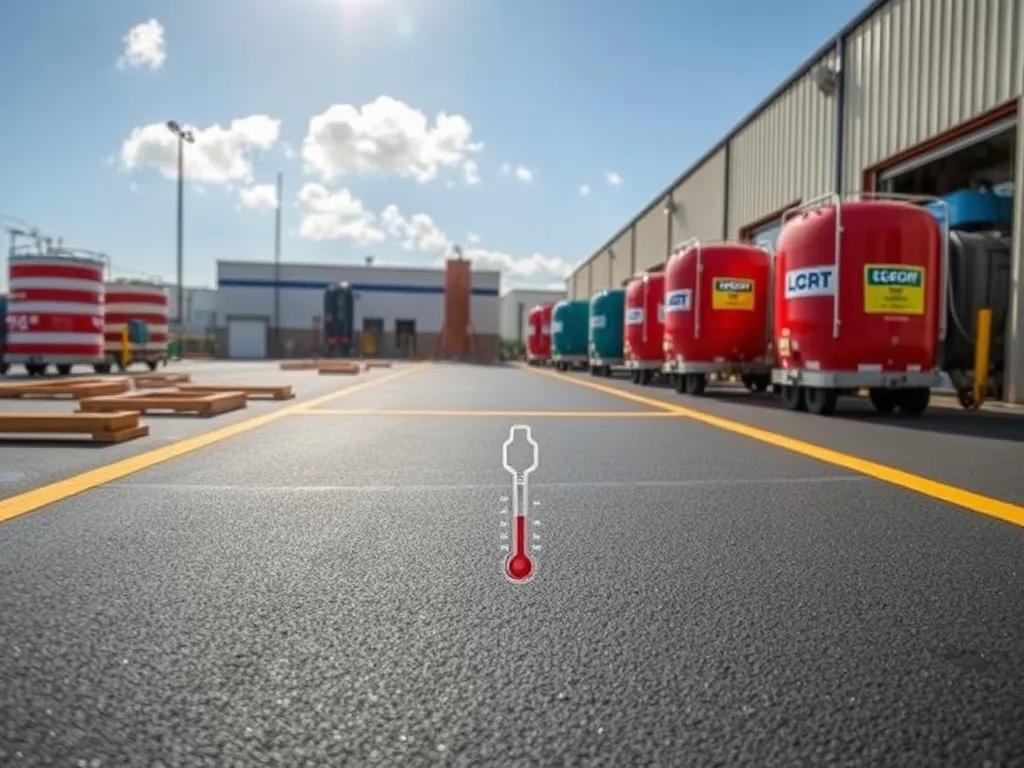
Maximizing Sealcoating Value
Smart planning boosts the cost effectiveness of sealcoating. Three strategies turn routine maintenance into a long-term money saver.
Optimal Application Timing
Apply sealcoat during dry weather above 50°F for proper curing. Early summer applications typically last 24-36 months versus fall treatments that might degrade before winter. Fresh asphalt needs 6-12 months to cure before first sealing. Correct timing cuts resealing frequency by up to 40% compared to poorly scheduled jobs.
Combining With Crack Filling/patching
Address cracks wider than 1/4″ before sealcoating. A 2023 industry study showed combined crack repair and sealing slashes pothole formation risks by 72%. Use rubberized crack filler ($1.50-$3 per linear foot) paired with coal-tar emulsion sealant ($0.15-$0.25 per sq ft). This dual approach prevents water infiltration that causes $800-$2,500 base repairs.
Maintenance After Sealcoating
Keep vehicles off sealed surfaces for 48 hours. Sweep debris weekly to prevent oil stains – a leading cause of premature sealant failure. Apply touch-up coats to high-traffic areas every 12-18 months. Proper care extends sealcoat lifespan from the average 3 years to 5 years, cutting long-term asphalt sealing prices by 30%.
These value-maximizing techniques set the stage for exploring eco-friendly alternatives that balance budget and environmental impact.
Environmental Considerations
Balancing ecological impact with budget concerns shapes smart sealcoating decisions. Eco-friendly materials and responsible waste management directly affect long-term project costs.
Eco-friendly Sealcoating Options
Bio-based sealants with plant-derived binders now compete with petroleum-based products. These low-VOC (volatile organic compound) formulas meet EPA standards while costing $0.15-$0.30 more per square foot. Calcetto Veranda Plus, a soy-modified emulsion, extends surface life by 3-5 years compared to standard coal-tar sealers.
| Sealant Type | Cost/Gallon | VOC Content | Disposal Fees |
|---|---|---|---|
| Coal-Tar | $18-$22 | 90%+ | $50-$75 per drum |
| Asphalt-Based | $20-$25 | 45%-60% | $30-$50 per drum |
| Bio-Based | $26-$32 | 5%-15% | $0-$20 per drum |
Six states offer tax credits for low-VOC sealants, trimming total project costs by 8%-12%. Though pricier upfront, eco-options reduce future expenses through slower degradation rates and lower hazard fees.
Proper Disposal Of Materials
Sealcoat waste falls under EPA’s Resource Conservation and Recovery Act guidelines. Contractors pay $120-$250 per 55-gallon drum for coal-tar disposal versus $40-$80 for water-based residues. DIYers risk $500-$2,000 fines for dumping wash water into storm drains.
Bulk purchasing cuts waste costs by 15%-20%. A 1,000-square-foot driveway needs 25-30 gallons of sealant—buying 35-gallon kits creates 5+ gallons of leftover material. Many suppliers accept returns of unopened containers for partial refunds.
Sealcoating crews certified in SPCC (Spill Prevention Control) protocols often include disposal in service quotes, avoiding surprise fees. This makes professional applications 18%-22% more cost-efficient for hazardous material handling than DIY approaches.
Factoring in ecological impacts reveals hidden savings—a critical step before addressing common sealcoating concerns.
FAQs: Asphalt Sealcoating Costs and Effectiveness
Is Sealcoating Worth the Money for Asphalt Driveways?
Yes, it often is worth the investment. For every dollar spent on sealcoating, homeowners can save approximately four dollars in potential repairs over a decade.
What Are the Main Disadvantages Of Sealcoating?
Sealcoating has a few notable disadvantages. It can’t repair deep, structural cracks and needs to be reapplied every few years. The application can also be messy if not done carefully.
How Does Coverage Rate Affect Total Costs?
The coverage rate significantly impacts costs. Sealants with low coverage rates (approximately 50 sq ft per gallon) will be more expensive than high-yield products (around 100 sq ft per gallon) due to the need for more material.
Can DIY Sealcoating Provide Adequate Protection?
DIY sealcoating can offer sufficient protection if executed correctly. However, professional jobs often apply thicker coats, which can lead to better results. Adequate experience and proper techniques are essential for DIY projects.
How Often Should Asphalt Be Resealed?
As a general guideline, asphalt driveways should be resealed every 2-3 years for high-traffic areas and every 3-5 years for low-traffic driveways. You can test the surface by spraying water; if it soaks in quickly, it’s time to reseal.
Also See: Cost Analysis Of Different Asphalt Heating Techniques
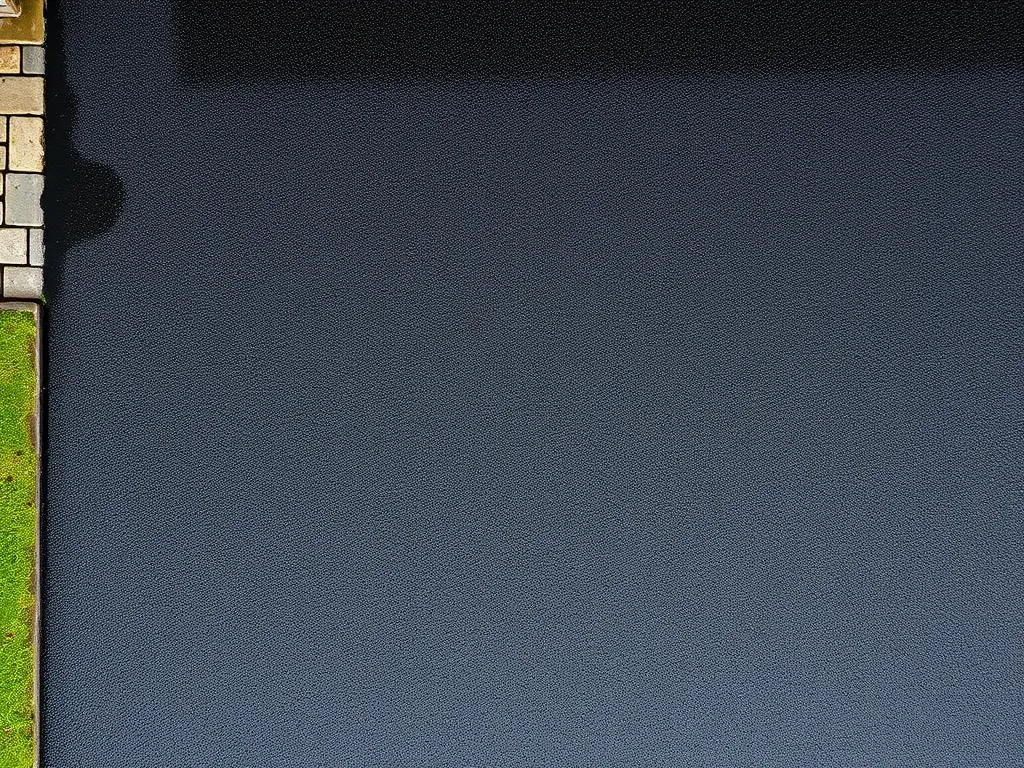
Closing Thoughts
Understanding the cost effectiveness of sealcoating is vital for maintaining asphalt surfaces. While the initial investment may seem significant, the long-term savings on repair costs and extended lifespan can outweigh those expenses. Sealcoating not only enhances your driveway’s appearance but also protects it against harsh elements.
Regular maintenance through sealcoating can reduce the need for costly replacements significantly. Balancing the right materials and methods ensures you maximize your return on investment. As you consider your options for asphalt preservation, remember to factor in the climate, driveway condition, and sealing materials to optimize results.
For deeper insights and tools to guide your asphalt projects, check out Asphalt Calculator USA. Your pavement deserves the best care, and we’re here to help you make informed choices.

